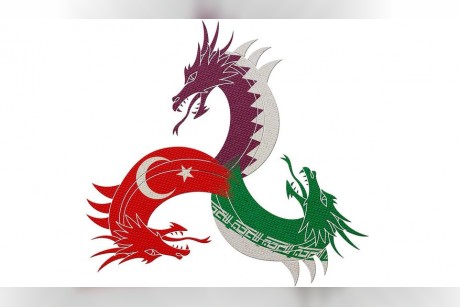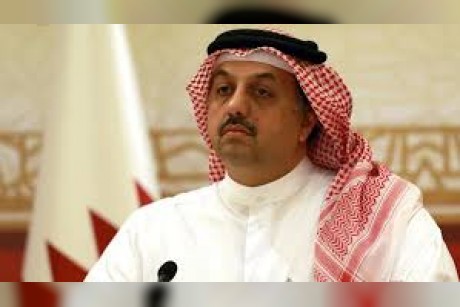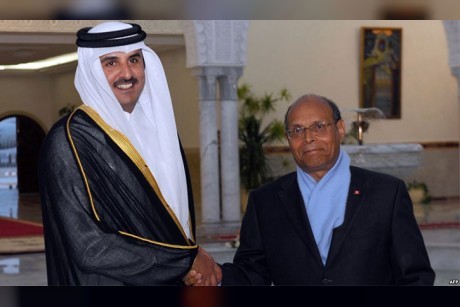Qatar’s role in undermining the stability of the Sunni Islamic world is undisputed, and is on a par with that of Iran. Qatar has used the Doha-based Al Jazeera media network to conduct a propaganda war against its Sunni rivals, and also provided massive funding for terrorist militias to undercut its less-jihadist Sunni neighbors.
Qatar’s destabilizing actions stand in dark contrast with President Trump’s successful participation in the first-ever Islamic America Summit, May 20-21, as James A. Lyons, the former admiral in the US Navy said in an article in the Washington Times.
The two key objectives of that summit were to not only isolate Iran, but to also obtain agreement from all heads of state that concrete steps must immediately be taken to stop funds from going to terror groups, e.g., ISIS, Al-Qaeda, et al. In that sense, it was recognized at the summit that Qatar was a problem to a greater extent than other nations represented, as it openly supported various jihadi groups, particularly the Muslim Brotherhood at a very high level.
Not surprisingly, Saudi Arabia and its allies, Bahrain, the UAE and Egypt, have turned on Qatar with a boycott. The Qatari leadership’s cozy relationship with Iran and the fact that Qatar serves as Iran’s banker and diplomatic proxy is not helpful. While the Saudi-led coalition initially placed 13 demands on Qatar, the primary concern was about Qatar’s relationship with Iran, which the coalition considers to be an existential threat to their regimes.
Qatar’s support for the Muslim Brotherhood also figures into the decision to draw a line. Specifically, after the “Arab Spring” chaos, Saudi Arabia and the UAE saw the Muslim Brotherhood’s rise to power in Egypt as severely threatening. Compounding the problem was the Obama administration’s support for the Muslim Brotherhood, which only intensified their concern.
Qatar has rejected the 13 demands by the coalition. The Saudi-led coalition has now somewhat softened its original demands. It is understood that they are now asking Qatar to act on a set of principles that includes combating terrorism and so-called “extremism,” and denying financing and safe haven to terrorist groups.
The modified demands also include ending incitement of hatred and refraining from interfering in the internal affairs of other sovereign nations. Qatar’s emir, Tamim bin Hamad Al-Thani has said he is open to dialogue. Qatar’s implementation of its recently signed memorandum of understanding with the United States on terror financing — which involves a commitment to arresting or expelling all those individuals or groups the U.S. has designated as supporting terrorism — is a step in the right direction, provided it follows through.
Aside from all of the above factors, there are reports that the “straw that broke the camel’s back” was the $1 billion ransom Qatar paid to free a group of 26 Qatari nationals kidnapped by the Iranian-backed Shiite militia Kata’ib Hezbollah while in Iraq in December 2015. Freed in the same deal were 50 other militants seized by jihadi groups in Syria, as reported in the Financial Times on June 5.



